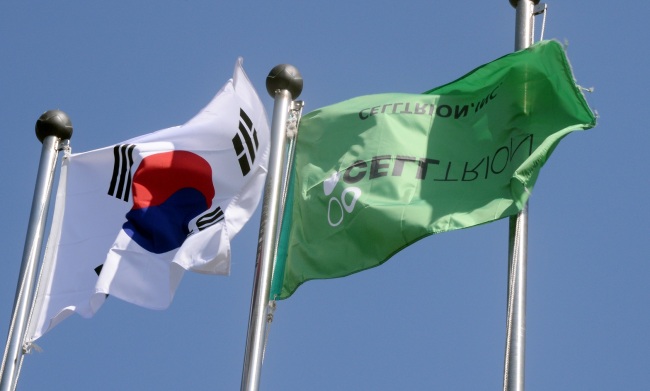Bio
Celltrion, Samsung Bioepis emerge strong in biosimilars market
[THE INVESTOR] Korea’s Celltrion and Samsung Bioepis are strengthening their foothold in the fast-forming market of biosimilars — cheaper, near-replicas of live cell-based biologic drugs whose patents have expired.
The two Songdo-based drugmakers have emerged as forerunners in the race for the development and commercialization of biosimilars, slated to form a lucrative industry as the patents to some of the world’s most profitable biologic medications developed by big pharma expire.
 |
Celltrion’s headquarters in Songdo, Incheon. Park Hyun-koo/The Korea Herald |
Celltrion inched closer to introducing the first biosimilar referencing Roche’s Rituxan to the US last week by submitting Truxima for review by the US Food and Drug Administration. In Europe, Truxima is already being sold as the only biosimilar to rival to Rituxan in the region.
Celltrion is also the first company to have commercialized a biosimilar referencing Johnson & Johnson’s Remicade in the US and Europe, the two biggest biologics markets in the world. For the past year or so, the firm has benefited from being the only seller of a cheaper version of the pricey arthritis drug.
Closely trailing Celltrion is Samsung Bioepis, which has a fast-moving pipeline of six biosimilars. Of them, the firm’s Enbrel-referencing biosimilar, Benepali, was the first of its kind to be approved and sold in Europe. Its Remicade-referencing biosimilar has already scored approval in both Europe and the US alongside to Celltrion.
Last week, Samsung Bioepis’ Imraldi, its biosimilar referencing AbbVie’s top-grossing drug Humira (adalimumab), was newly recommended for approval by the European Medicines Agency’s Committee for Medicinal Products for Human Use.
If formally approved by the EMA, the drug becomes the second biosimilar version of Humira to score approval in Europe alongside Amgen’s Amgevita, though the cheaper drugs cannot be sold until Humira’s main patent expires in October 2018.
In addition, Samsung Bioepis and Celltrion have both filed their biosimilar versions of Roche’s breast cancer drug Herceptin, for approval by the EMA. US-based Amgen as well as Mylan and its partner Biocon have also done the same. EMA has yet to grant approval to any of the proposed Herceptin biosimilars.
Although many companies, including big-name drugmakers, are investing in biosimilars, those who can manage to bring their products to the market the fastest are at a comparative advantage. And this is something that Celltrion and Samsung Bioepis have successfully achieved, according to Antonio Iervolino, head of forecasting at EvaluatePharma.
“The second wave of biosimilars is in monoclonal antibodies. And it’s definitely where Celltrion has led, while Samsung Bioepis has made well-directed investments in biosimilars based on strategic partnerships in Western Europe and the US,” Iervino told The Korea Herald during the 2017 Bio International Convention in San Diego last month.
By being the first players to launch biosimilars of blockbuster drugs in the US and Europe, they have benefited from ample “first-market advantages” that greatly shape sales, according to the EvaluatePharma executive.
“When it comes to biosimilars, similar to what happened with generics, if you are the first player, obviously you can command the pricing as well as shape the strategy you want. And with this, you can obviously take a large share of the market,” he said.
Looking ahead, biosimilars are going to continue to pave a bigger presence in the pharma industry. They are expected to challenge more than US$194 billion in sales for the sellers of the original blockbuster drugs, according to EvaluatePharma’s latest report “World Preview 2017 Outlook to 2022.”
“Major biologics are going off patents, especially in oncology. Given this, biosimilars are expected to see a significant upside in the next five to six years,” Iervolino said.
The weight that biosimilars will have on the global pharma sector can be gauged by the recent direction of big pharma, many of which are pursuing biosimilars on top of new drug innovation, Iervolino said.
“The investment of large biotech companies in the biosimilars space, such as Biogen and Amgen, is likely to fast track the commercial impact of these therapies,” he said.
By Sohn Ji-young/The Korea Herald (jys@heraldcorp.com)








